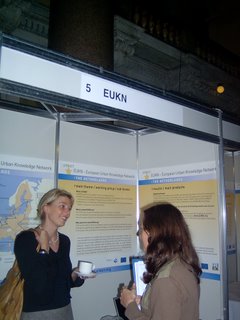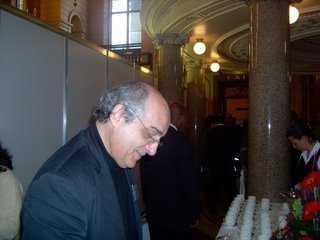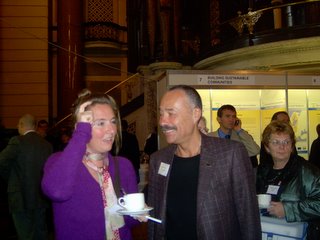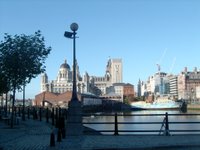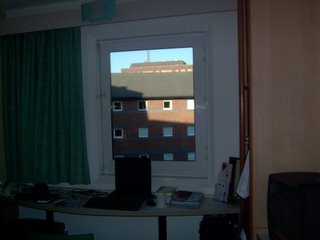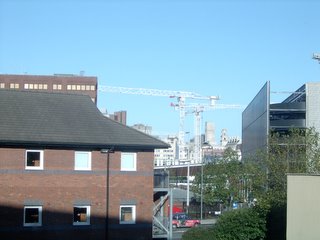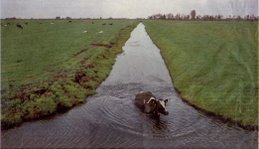
Look at her portrait, more Brit, you die. The Wrap, downloaded daily on my fragile ISDN connection, often made my (lonely) day at the dying away of the nineties and the grey start of the 3rd millennium…
Here is what she writes today on her “Guardian UK politics” blog about the latest instance of US neocons-penetration into “Old” Europe. (I wrote about an “American Enterprise Institute” (an important frontshop of the neocons in Washington) excursion to Holland, here , July 6, 2005):
Inside the hawks' nest
By Ros Taylor / UK politics 12:52pm
Old neocons never die. They rebrand and carry on. So the London launch of the Henry Jackson Society and its Project for Democratic Geopolitics at Westminster tonight - by invitation only, natch*) - is an event worth watching, not least because it has the backing of two men very close to David Cameron**), the MPs Michael Gove and Ed Vaizey.
Much of the HJS's statement of principles could have been written by Tony Blair - who, as I write, is making very similar points to the Commons liaison committee as they question him about Britain's policy in the wider Middle East. The Society "supports a 'forward strategy' to assist those countries that are not yet liberal and democratic to become so. This would involve the full spectrum of our 'carrot' capacities, be they diplomatic, economic, cultural or political, but also, when necessary, those 'sticks' of the military domain."
The society has made its home in Peterhouse, one of Cambridge's more old-fashioned colleges, and takes inspiration from the eponymous Democratic US senator who died in 1983. Initially an isolationist, Jackson became an advocate of a tougher stance against the Soviet Union and of American intervention in Vietnam - sticking by the latter view even when most of his party turned against it. He was also a civil rights supporter and campaigned for environmental protection.
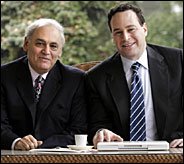
So far, so neoconservative. Still, it would be wrong to gloss the HJS as simply an apologist for the Bush administration. It is certainly anti-UN (believing that "only modern liberal democratic states are truly legitimate, and that any international organisation which admits undemocratic states on an equal basis is fundamentally flawed") and it is certainly pro-Nato, but it calls for the EU to maintain a "strong military" of its own - albeit under British leadership. Significantly, the pro-EU former minister for Europe, Denis MacShane, has signed up. So far, the society has concentrated on Middle Eastern democracy (and, yesterday, the Guardian's "shame" in "pandering" to Noam Chomsky). Human rights abuses in China, touched upon by George Bush during his visit, get less attention. But although it looks and feels Blairite, the HJS is preparing to move on. For those curious about just how neoconservative a Cameron-led opposition would be, the society will be worth watching.*) “natch” (slang) means: “naturally” (HR)
**) David Cameron is one of the candidates for Tory leadership in the ongoing elections for that position in the UK (HR)
***) Bill Kristol is son and heir of Irving Kristol, (god)father of the neocons (see: Irwin Steltzer “Neoconservatism”, HR)
This went too far for the Dutch Patrons of the Burke Stichting (among them former prime Minister Dries van Agt), so they collectively resigned, leaving behind aforementioned Kinneging as sole patron. Pfizer also, transferred its Spruyt-subventions to an European Free-Market Foundation based in Brussels. So far, only a dissident member of the Dutch conservative liberal party VVD, MP Geert Wilders, associated himself with Kruyt and his Burke Stichting. This crackpot “Liberal Jihad” protagonist had himself shown around in the USA last year (by the Burke Stichting), where the real neocons loathed his xenophobic views on Muslims. (Real neocons like you find them in the Weekly Standard, do like fundamentalists and are convinced that believers, even Muslim believers, are the backbone of a disciplined society.)

Under Kruyt however, the Dutch Burke Stichting has no alternative but to associate itself with the xenophobic fringe in Dutch politics, so we may expect that the real neocons will soon establish themselves in Holland by means of another foundation, bearing another historic name, (why not John Harris?), and spread the Word along the lines of London Times' colomnist Irwin Steltzer’s prescriptions.


